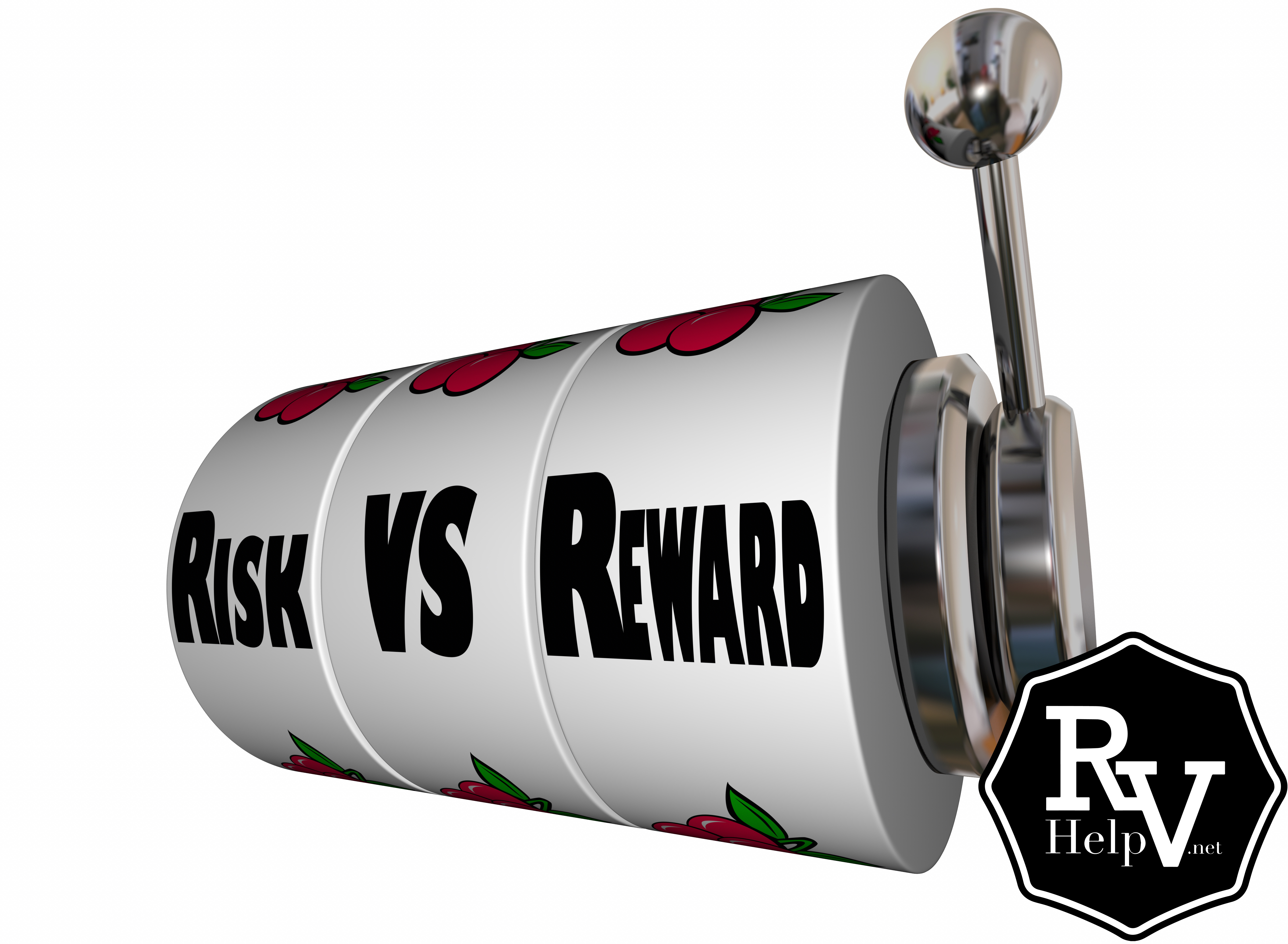Risk vs. Reward
Risk
- Lemon law may not apply
- Does not have the same protections as buying a house or car in some states
- Towable RV’s (fifth wheel, toy hauler, etc..) are sometimes considered a trailer
- No warranty
- Hidden Damage (see Water Damage)
- Fast Depreciation
- Hard to sell
Reward
- Freedom to live or be anywhere
- Experience travel on your own terms
- Bring your pets
- Sleep on your bed
- Privacy
- Vacation your way
- Family bonding / experiences / memories
RV Buying is very risky but if the risk is handled correctly it can be rewarding. Balancing between Risk and Reward is something that we all try to do more often than we should. Many RV guides talk about the RV Types, Best Manufacturers, etc… but none have really focused on what I feel is the most important which is the risk.
To properly mitigate the risk we have to face and try to understand it. When you buy a house there are generally laws that help to protect you from deceptive acts. I dont know what all of those laws are but they don’t apply to RV’s. Some of them apply to cars but in the case of towable RV’s they are not cars, autos, trucks etc… They are simply a trailer. There are no safeguards and if you buy a bad one well you own it. There is no take back, there is no suing for millions of dollars (if you figure this out please write a book).
The rule is usually that all sales are buyer beware which basically means that its the responsibility of the buyer to inspect before purchasing. Its also assumed that when the buyer purchases the RV that they have inspected it and are satisfied with its condition. At that point the seller is no longer then owner of it and has no responsibility connected to it from that point forward. If the engine blows up the seller is not responsible. If you find water damage afterwards the seller is not responsible. The buyer is responsible from the date of purchase forward even if the damage was there before it was purchased. If you are talking about purchasing a towable RV its just seen as a trailer which I don’t think is even mentioned in the lemon law.
So to summarize once you hand over the money you own it. There is no take backs. No resets and you will have little to no recourse options if you discover a problem. Given that an RV can cost as much as a home or condo its scary to think about the worst possible outcome because the worst possible is pretty bad. Its important that you understand how much risk there is in purchasing an RV and really take your time.
Hopefully once you are sitting across the table from the seller being pressured to sign you understand that he has everything gain and you have everything to lose. No matter how much time you spend mitigating the risk there will be some risk. Im not saying this to scare you away from RV’ing. I love our time that we spend in our RV. We end every trip closer as a family. I just want you buy your next RV with your eyes wide open.
Please note that I am not a lawyer and Im not providing legal advice. Im just providing my opinion and thoughts.
For further reading please check out this definition of “Buyer Beware / Caveat Emptor” here.
The only chance you have at any recourse is if you documented your conversations with seller. You could utilize an “Opt-Out” approach to documenting your emails. By the following:
- Create Email to Seller
- State in opening sentence that this is to record what we discussed today if you disagree please reply and correct me otherwise we can consider this as true.
- Recap conversation from the day
- State any promises, warranties, guaranties or reassurances made to you by the seller
- Send the email to the seller
This might not stand up in court but atleast it would be some basis to show that conversations took place concerning the topics presented in the email. I would recommend that you implement this process after every phone conversation or face-to-face conversation.
In business it is common practice to summarize conference calls with action items and key points that were discussed. Providing a summary after a conference call helps all that were on the call or not to know what was discussed when reviewing the topic, case, issue, etc… I wouldn’t think of them as strictly for using in the case of a court case but as a way to make sure we are all on the same page.

